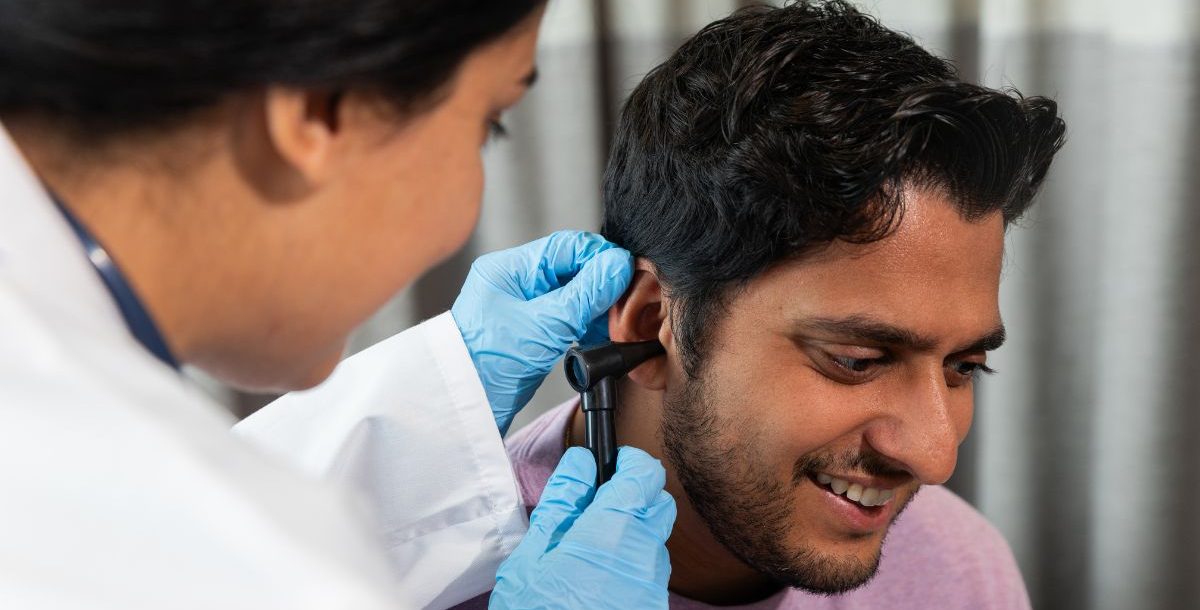Getting water stuck in your ear is annoying, and if you don’t deal with it properly, it can lead to bigger problems. Whether it happens after swimming, showering or washing your hair, it’s common to feel that sloshing or tickling sensation inside your ear. Knowing how to get water out of your ear can help you prevent a trip to the doctor.
However, if you do get water stuck in your ear and need the help of a medical professional, make an appointment with your primary care provider.
How does water get stuck in your ear?
Water can get trapped in the outer ear or even deeper into your ear, especially if your ear canal is curved or blocked by earwax. Sometimes, the water gets stuck behind a barrier of wax or skin, and it just won’t come out.
If water stays in your ear too long, it can lead to swimmer’s ear, an infection in the outer ear canal. That’s why it’s important to dry out your ears when they get wet.
Safe ways to get water out of your ears
Here are some simple, safe methods to try when you feel water trapped in your ear.
Tilt your head to the side
This is usually the first thing people try, and it often works. Just tilt your head to the side, with the blocked ear facing the ground. You can gently tug down on your earlobe to help open the canal and let the water drain.
Jump or shake gently
While your head is tilted, try hopping on one foot (the side with the ear facing down) or gently shaking your head. Gravity can help move the water out of the canal.
Use the vacuum method
This method does not refer to an actual vacuum cleaner. Cup your hand over your ear to make a gentle seal, then quickly flatten and cup your hand repeatedly. This creates a light suction that may help pull the water out. Make sure to do this softly – no slapping or pushing hard.
Try the Valsalva maneuver
Close your mouth, pinch your nose shut and gently blow through your nose. This can help open the eustachian tube, which connects your ears to your throat and may help release water trapped inside. Avoid blowing your nose too hard – just a light breath is enough.
Over-the-counter ear drops
Some ear drops are made to help dry up moisture. These are sold at drugstores and they’re often labeled for “swimmer’s ear.” Follow the directions on the label. If you’re unsure, call your primary care provider‘s office for advice.
What not to do
Knowing how to get water out of your ear is just as important as knowing what not to do.
- Never use cotton swabs to clean inside your ear. They can push the water (and wax) deeper into the canal and risk puncturing your eardrum.
- Don’t stick your fingers or any objects into your ear canal. This can cause injury or irritation.
- Don’t use hot air or high heat from a dryer. This could burn your ear or damage sensitive skin inside.
How to prevent water from getting stuck
If you spend a lot of time swimming or bathing, here are some easy ways to help prevent water from getting trapped in your ear:
- Wear a swim cap or use waterproof earplugs while swimming.
- Dry your ears gently with a towel after getting wet.
- Use alcohol-based ear drops after swimming to dry out extra moisture (talk with your primary care provider before using these regularly).
- Tilt your head to the side after swimming or showering to help drain water early.
When to see a doctor
Usually, water in your ear goes away within a few hours or by the end of the day. But if the water stays stuck for more than a day or if you notice hearing loss, pain or itching, make an appointment with your primary care provider. These could be signs of swimmer’s ear or another ear infection that needs treatment.
If you have enough pain and your primary care office is closed, head to your nearest urgent care center. Providers there can treat most conditions caused by ear pain.
How we can help
Knowing how to get water out of your ear can help you avoid a doctor’s visit if water does get stuck.
However, if you regularly deal with water stuck in your ears or experience discomfort or hearing changes, talk with your primary care provider. They may refer you to a specialist, such as an ENT doctor, to check your ears, recommend safe treatment and help prevent infections or long-term problems.
Your primary care doctor may also show you how to care for your ears at home and when to use ear drops or other tools to keep your ears healthy and dry.
Learn about the primary care services as well as the urgent care and walk-in services we offer at Mercy Health.






